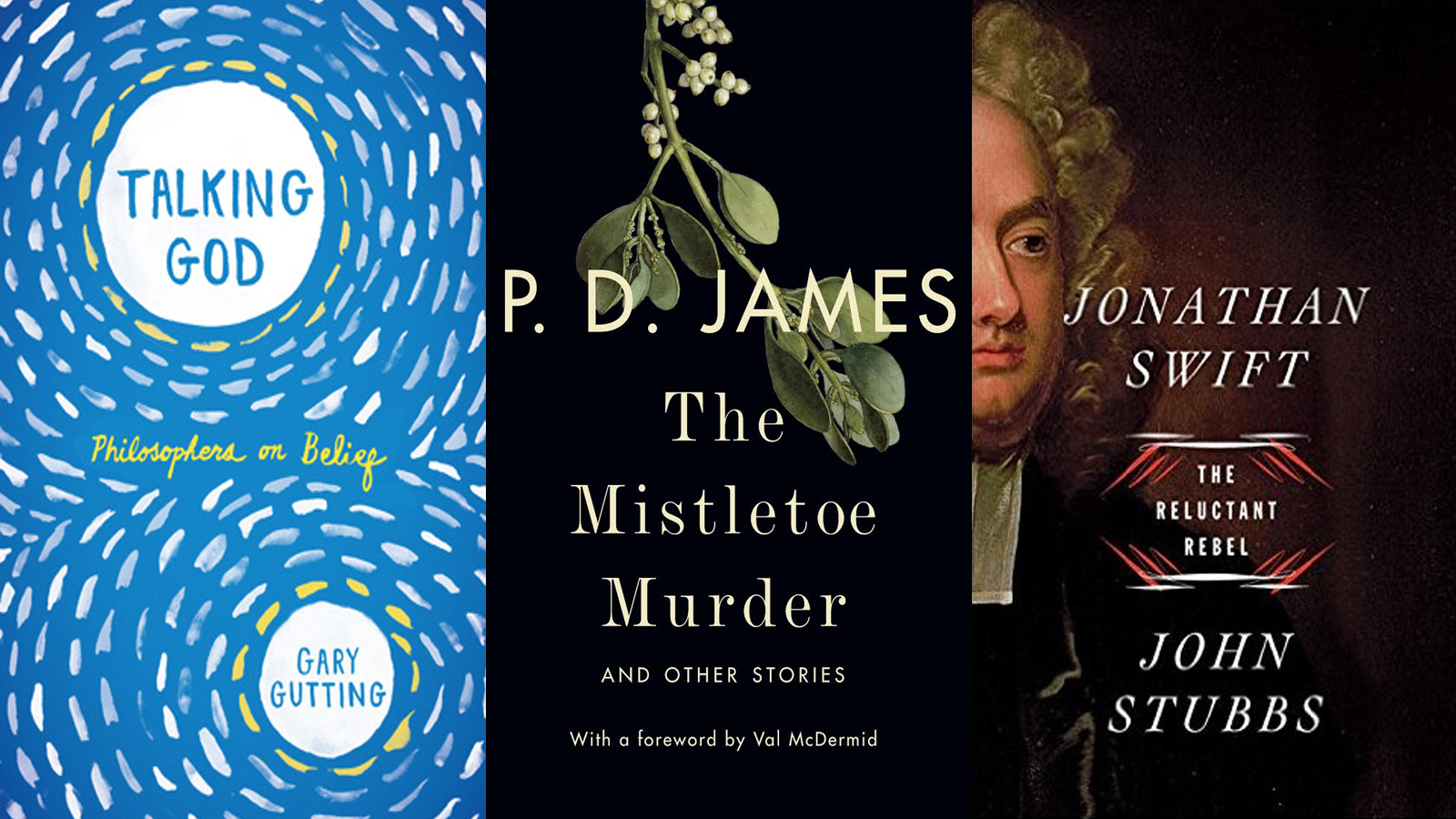Gary Gutting (Norton)
In 2014, the philosopher Gary Gutting conducted interviews via email with a dozen fellow philosophers for The Stone, a blog published by The New York Times. They are collected in this book, bracketed by a preface and a self-interview (in which “G.G.” is in dialogue with “g.g.”) and adding Gutting’s “further thoughts” at the end of each exchange. The range of the interviewees—leading off with Alvin Plantinga—is wide, and the conversations are lively. This would make an excellent choice for an adventurous book group or a Sunday school class (perhaps guest-taught by a local professor of philosophy).
P. D. James (Knopf)
Posthumous books from favorite authors are very much a mixed bag (especially when they’ve been “completed” by another hand), but this handsome little volume from P. D. James (with a preface by Val McDermid) is a delight. It gathers four short stories that could be read as homages to the Golden Age of detective fiction, which it is fashionable to deprecate. But as James noted elsewhere, all crime fiction (all fiction across the board, in fact) is highly stylized, “escapist,” whether the predominant flavor is “cosy” or “hard-boiled.” If you didn’t find a copy of this book in your Christmas stocking, why not give one to yourself?
John Stubbs (Norton)
The author of Gulliver’s Travels has not been neglected by biographers—Yale University Press published a fine volume by Leo Damrosch as recently as 2013—but Swift’s life and times were complex enough (and distant enough from our own day and its reigning assumptions) to justify multiple takes. John Stubbs’s massive book (subtitled “The Reluctant Rebel”) runs to more than 600 pages of smallish type (not counting the extensive endnotes), but it is an unflaggingly interesting account of a tormented genius, neither hagiographic (Swift “took the freedom to berate as one of his basic liberties”) nor animated by a desire to take its subject down a peg.










